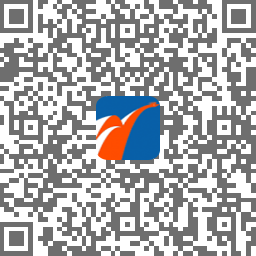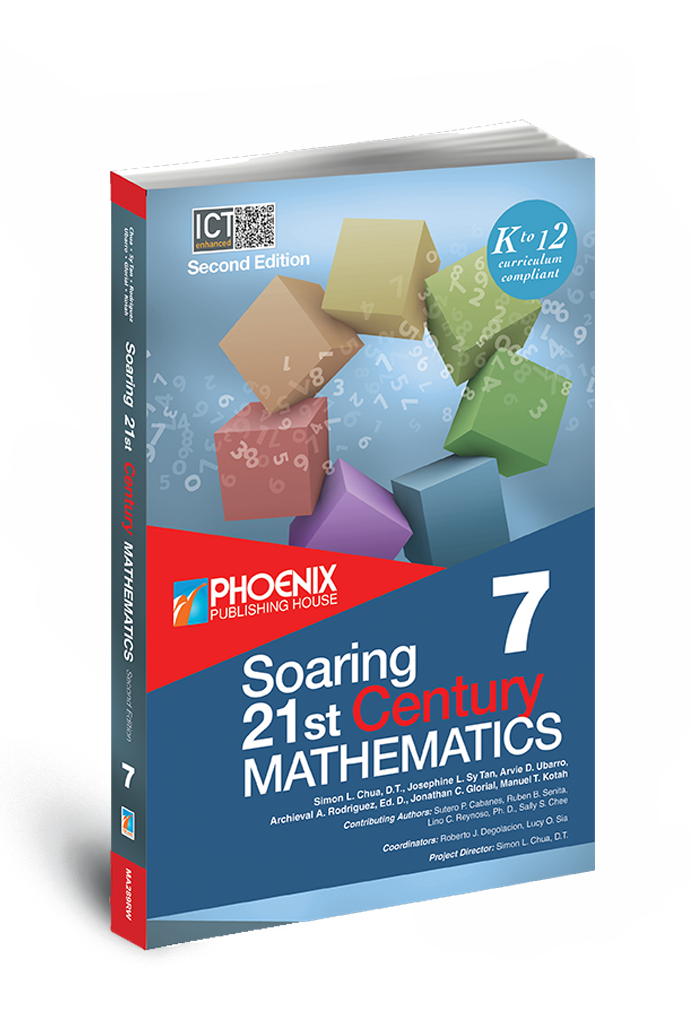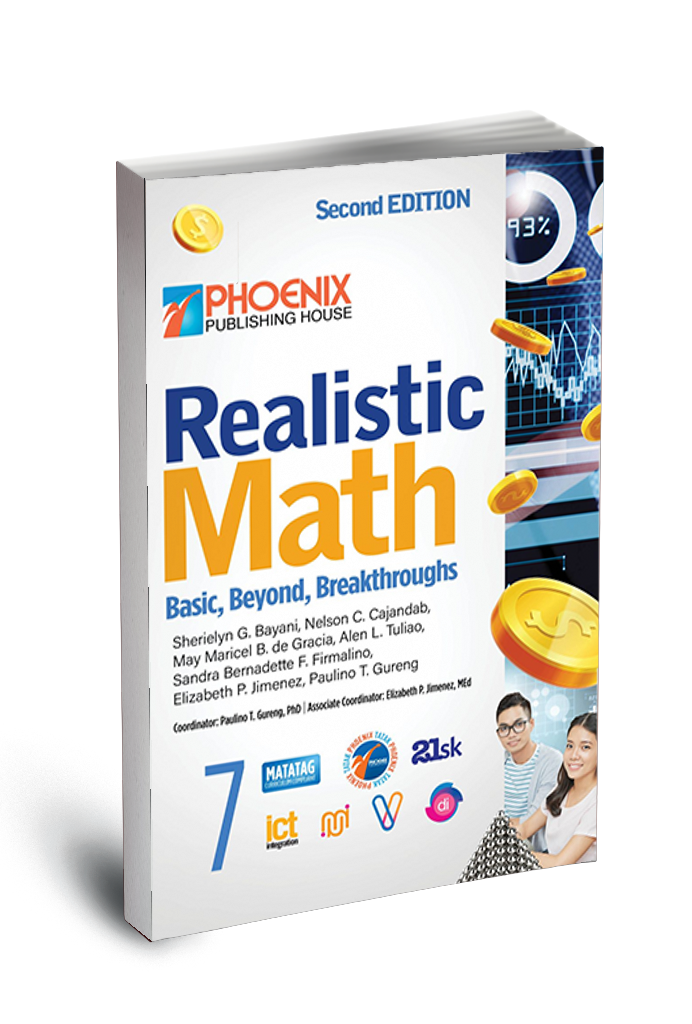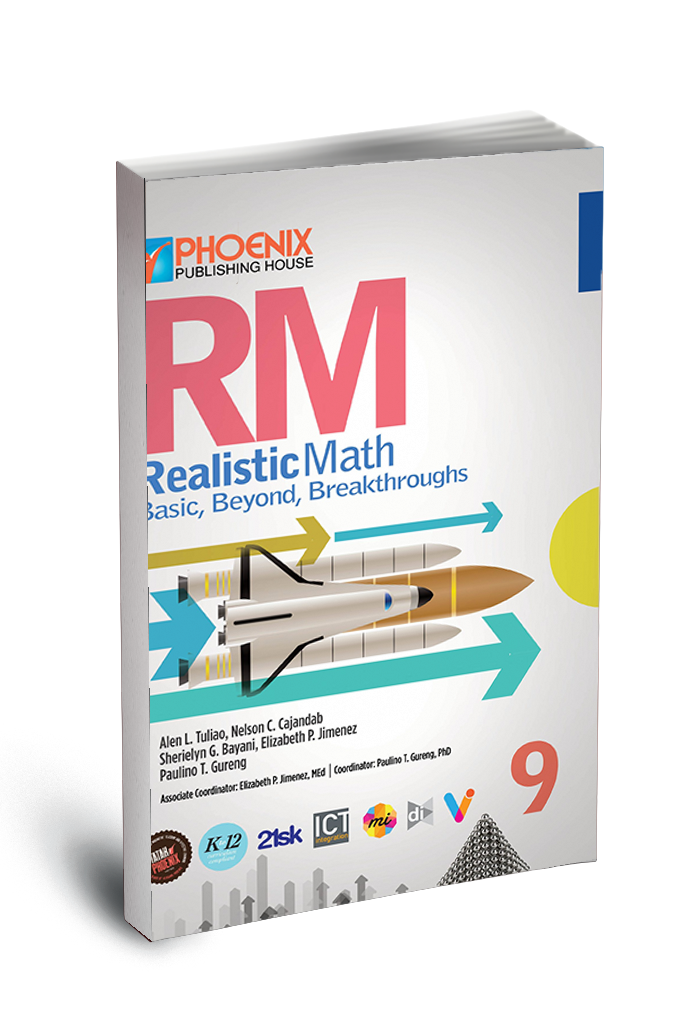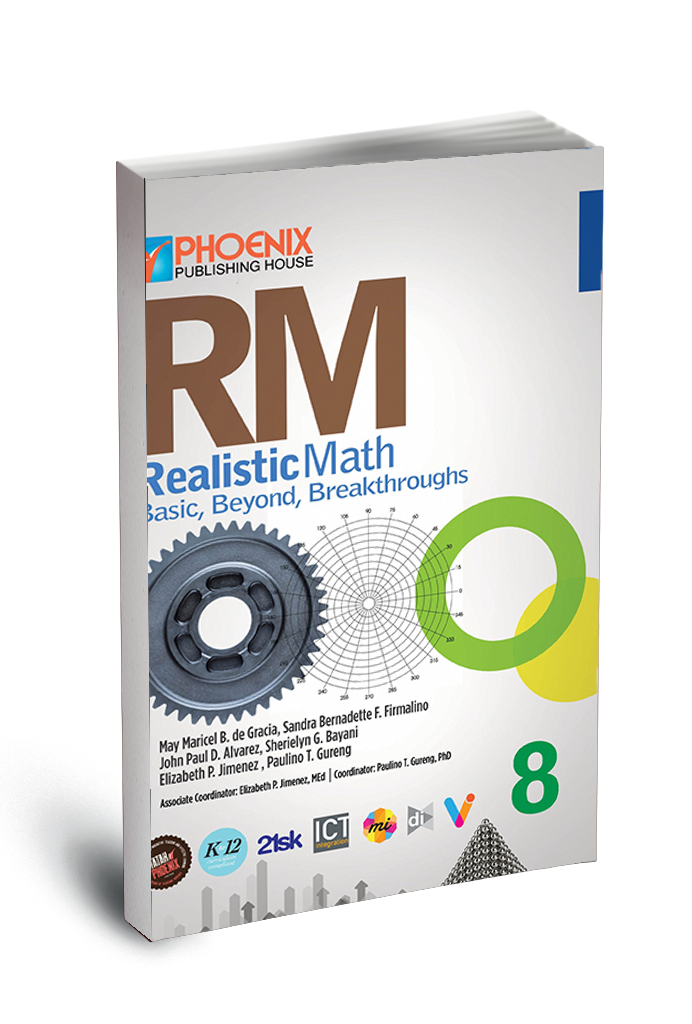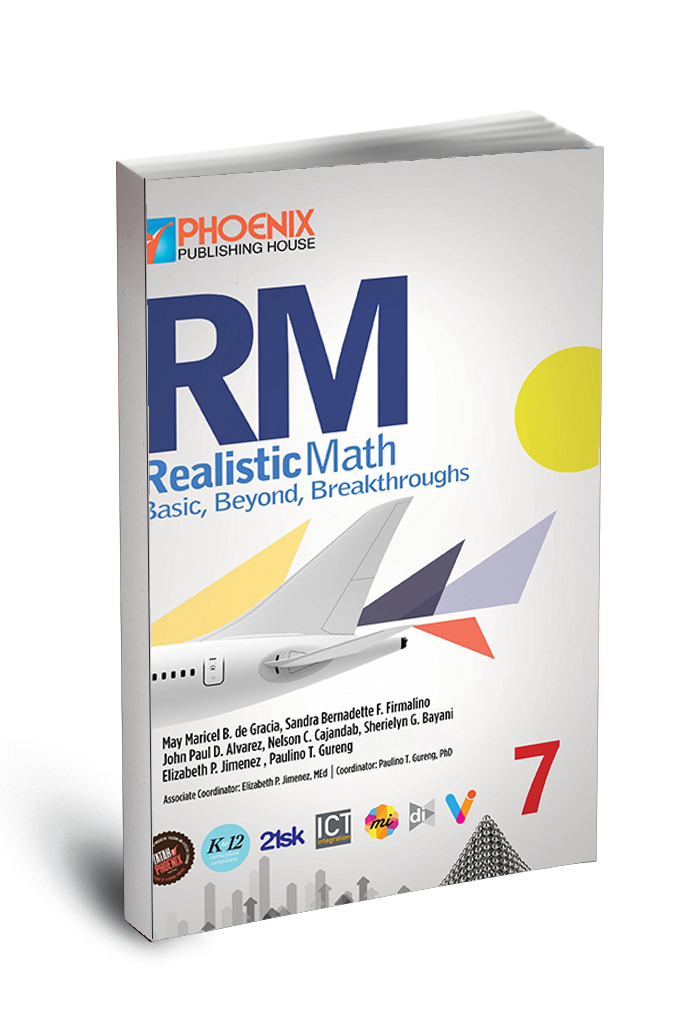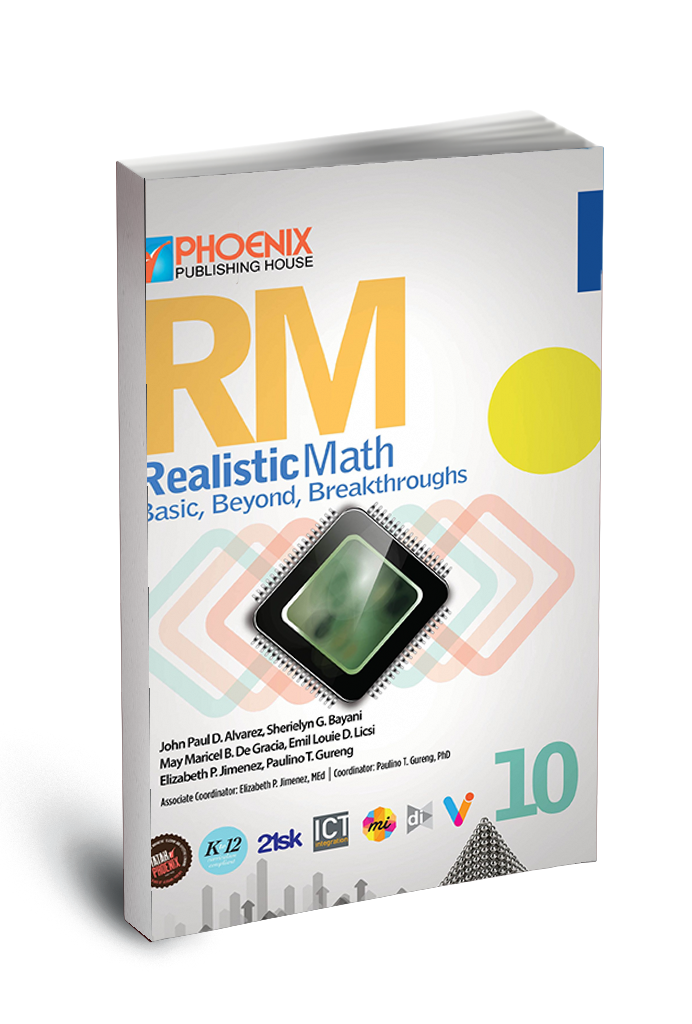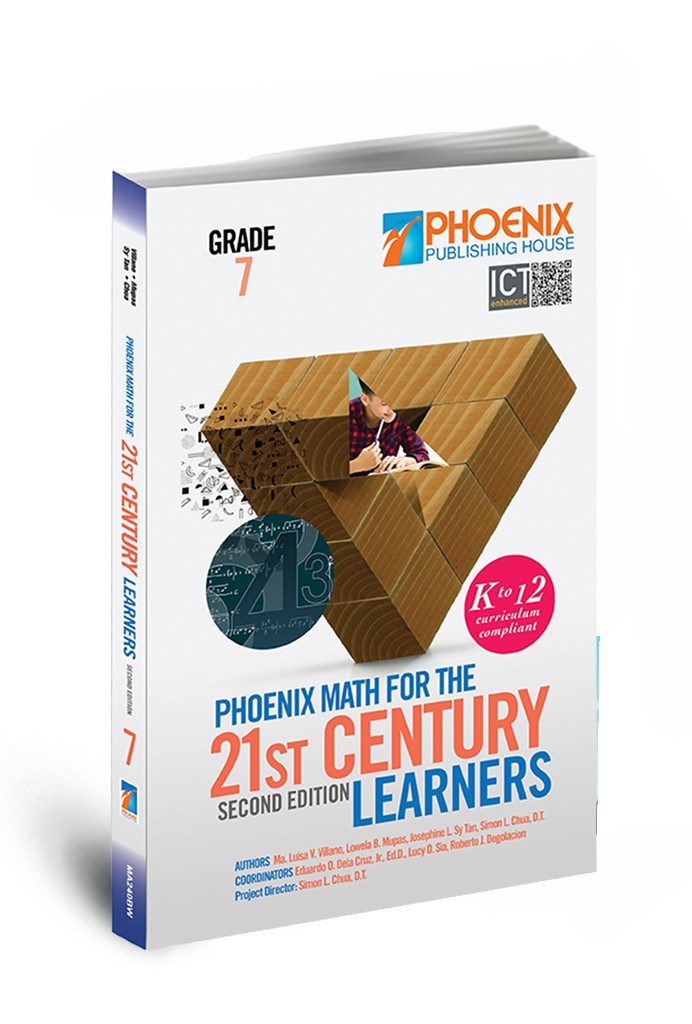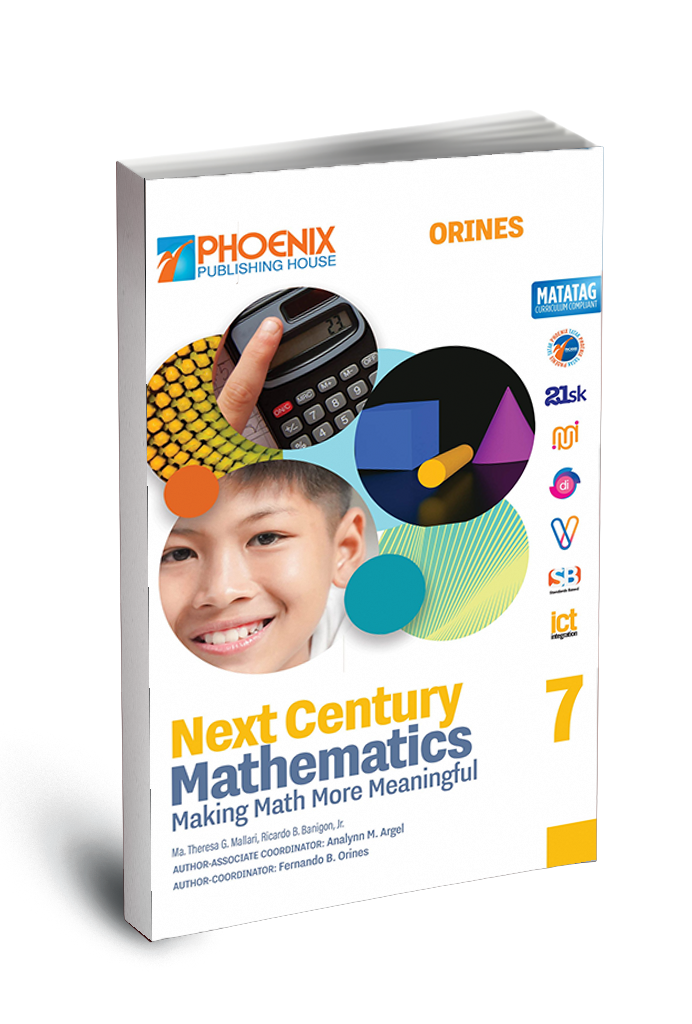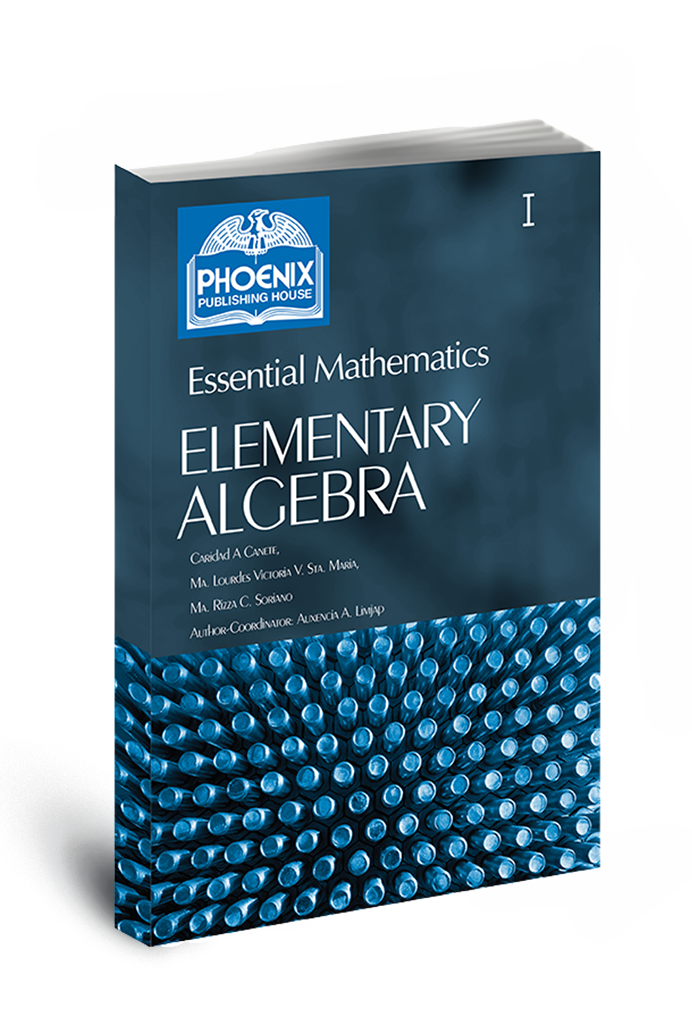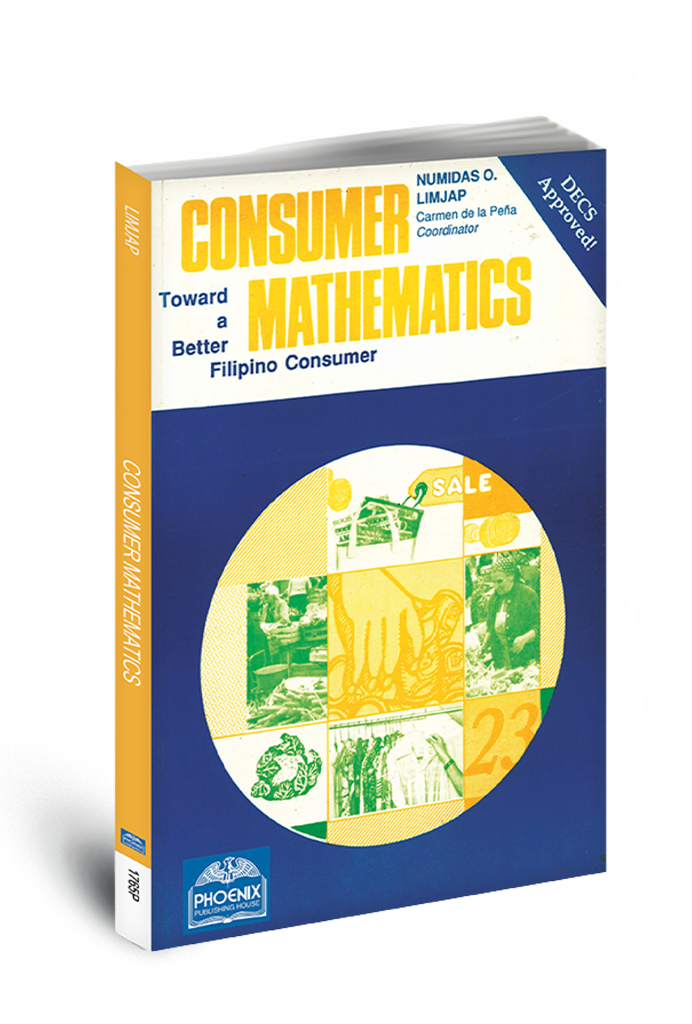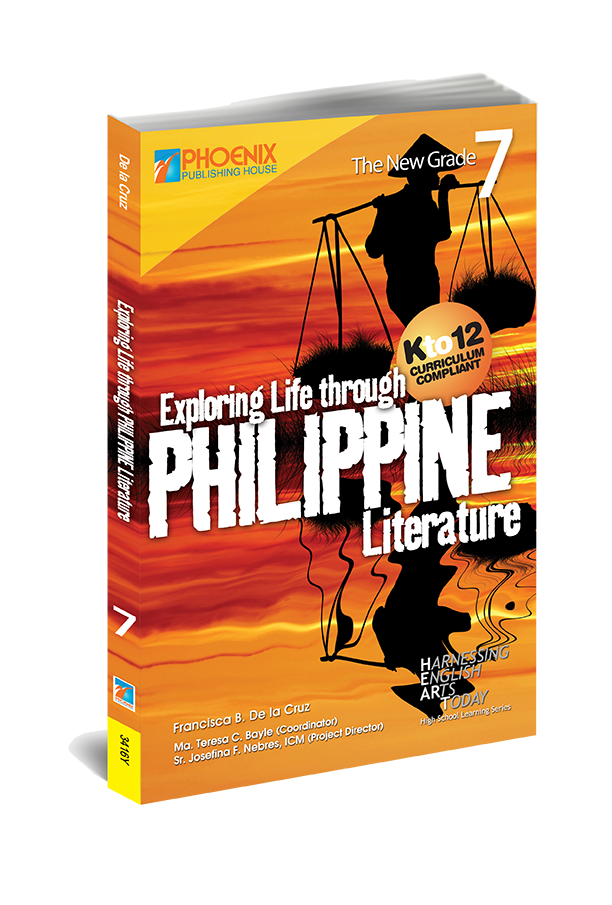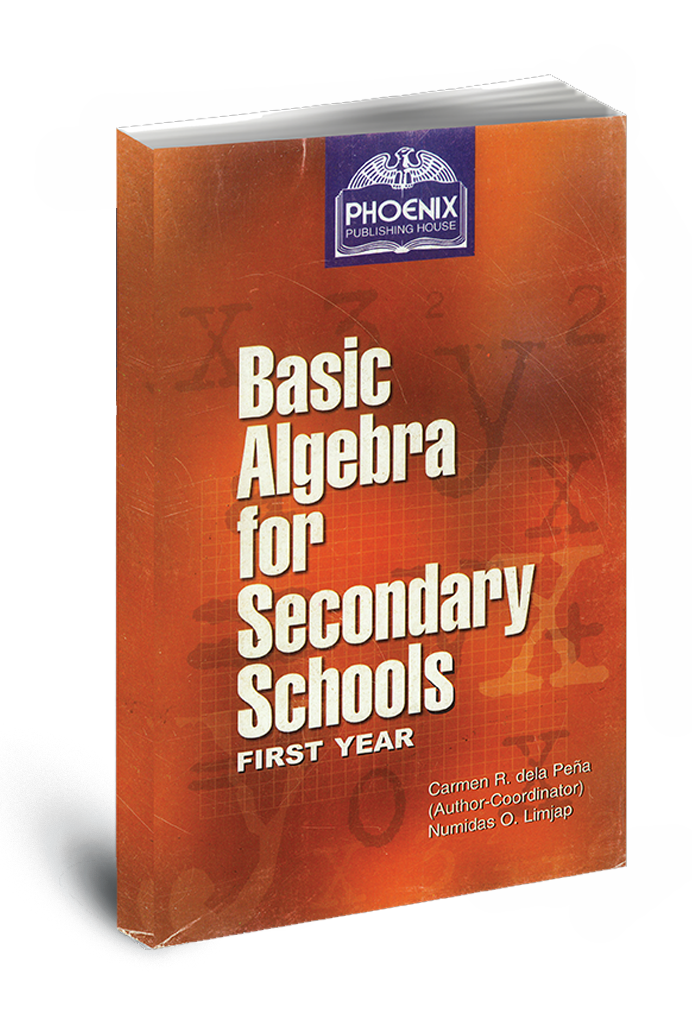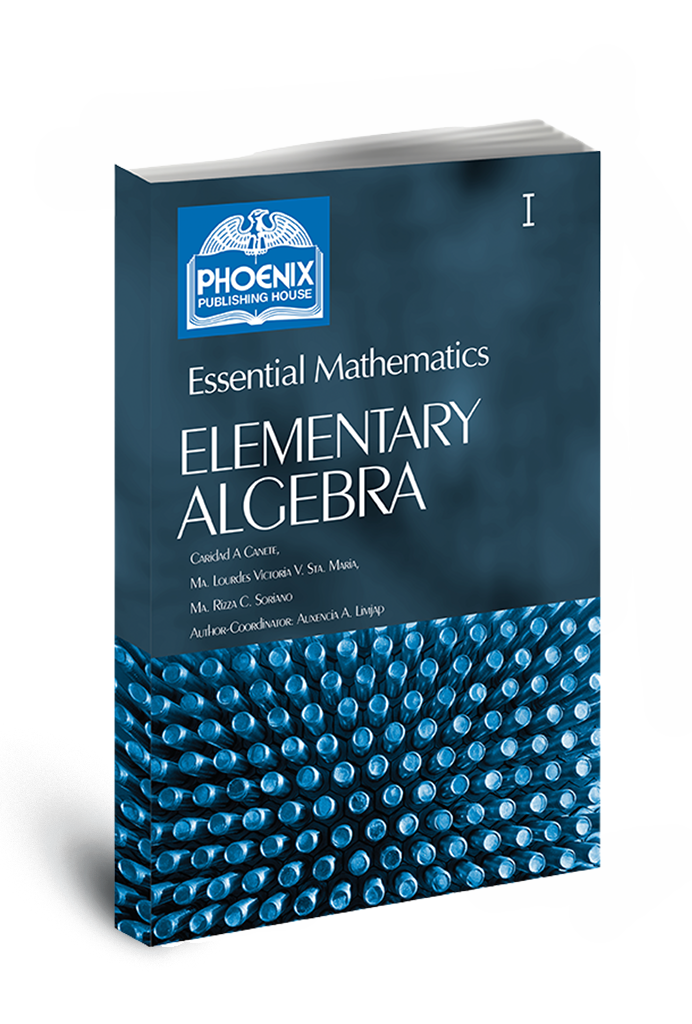
Essential Mathematics
Transforms knowledge of students to thinking and problem solving skills essential to the development of deep conceptual and procedural understanding of mathematics.
Author/s
Elementary Algebra: Caridad A. Cañete, Ma. Lourdes Victoria V. Sta. Maria, and Ma. Rizza C. Soriano
Intermediate Algebra: Angelita de Jesus and Allan Bailestra
Geometry and Advanced Algebra and Trigonometry: Ma. Jennifer C. Alarcon, Stephanie Anne B. Mutoc, and Josephine Sacluti
Levels I – IV Author-Coordinator: Auxencia A. Limjap
Level/s
High School
Copyright
Elementary Algebra: 2007
Intermediate Algebra: 2007
Geometry: 2007
Advanced Algebra, Trigonometry, and Statistics: 2007
The Essential Mathematics series was prepared by a group of mathematics educators who assume significant roles in reform movements in basic mathematics education in the country. Their classroom experiences and research-based pedagogical content knowledge were used in the design of instructional materials anchored on the theory of active construction of knowledge. The features of the book include but are not limited to the following:
- Promotes transformative learning of mathematics by starting each lesson with a problem-solving scenario or an activity that probes students’ knowledge
- Engages students in concept building through activities in “Time to Discover” that trigger self-reflection,
exploration, and investigation - Encourages critical discourse and negotiation of meaning among the students as they find the link of their old knowledge with the new mathematical concepts in the discovery activities
Provides students with opportunities to make conjectures and inferences about the algebraic and geometric properties and relationships - Generates conclusions, definitions, and generalizations on mathematical concepts through open-ended questions found in all sections of the book
- Assesses learning in every section through items in “Time to Exercise” which accommodate the needs of students at different developmental levels
- Utilizes an interactive format that allows students to respond and articulate their ideas; and the teachers to diagnose student thinking for possible alternative conceptions
- Provides chapter review to highlight the important mathematical concepts
- Coaches teachers to utilize technology in the classroom including indigenous ones like the patty paper, and modern ones like handheld calculators or computer softwares
The Textbook is designed to give students at all developmental levels opportunities to construct their mathematical network by building their procedural skills and developing their conceptual understanding in algebra and geometry. It uses both the inductive and deductive methods to provide learners with rich mathematical experiences.
The Teachers Guide includes lesson plans that help teachers execute the three steps for transformative learning, namely,
(1) exposing students’ prior knowledge through an activating event,
(2) engaging students in activities for critical self-reflection and critical discourse,
(3) guiding the students to make generalizations, apply their new knowledge to different situations, and test the new concepts and skills.
The Syllabus uses the three steps for transformative learning as the framework. It lists the learning competencies, goals, and objectives of every topic, strategies appropriate for the attainment of conceptual understanding and procedural skills, assessment tools that measure if the goals were attained.
Other Books
Building Learner Resilience with MATATAG Curriculum – Compliant Solutions

